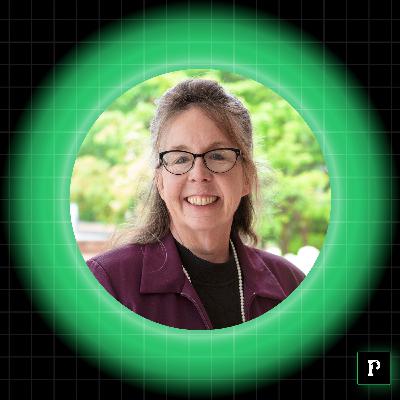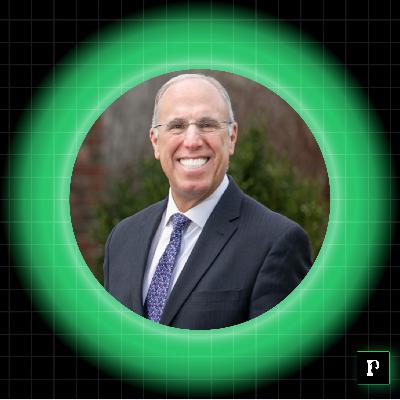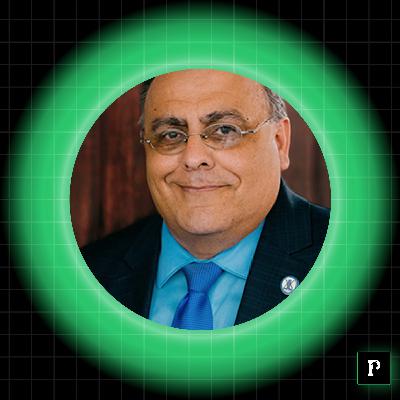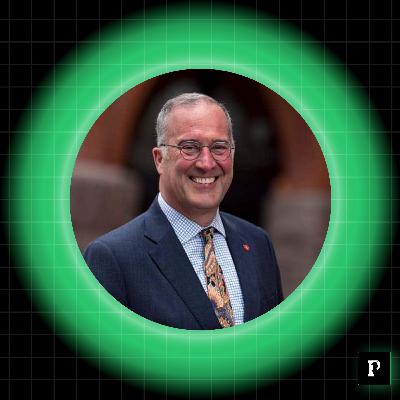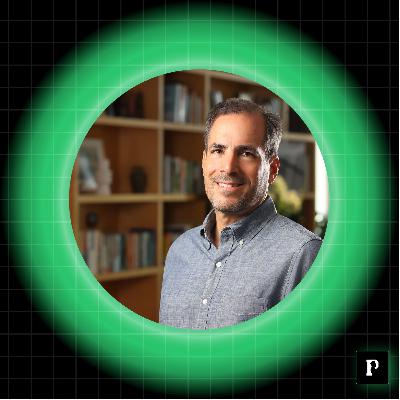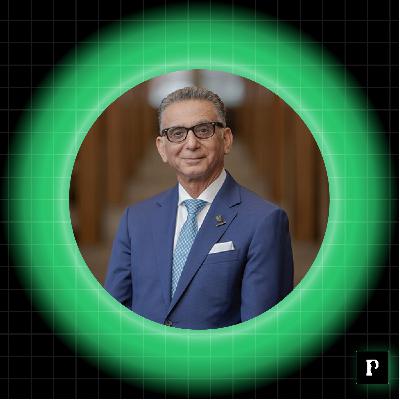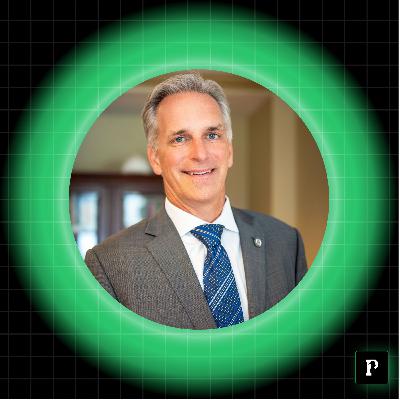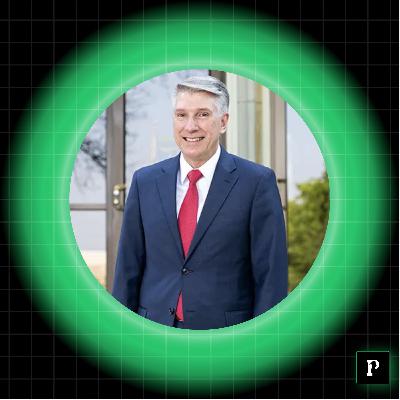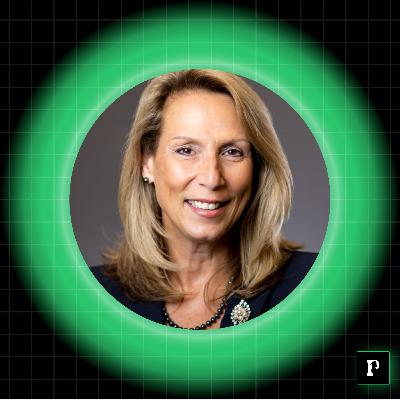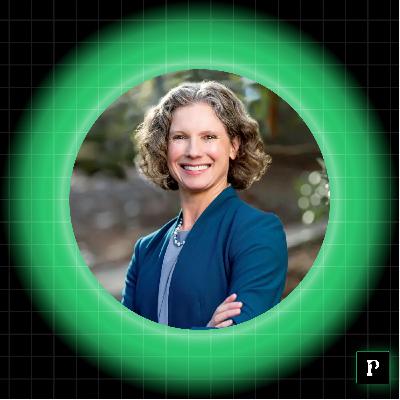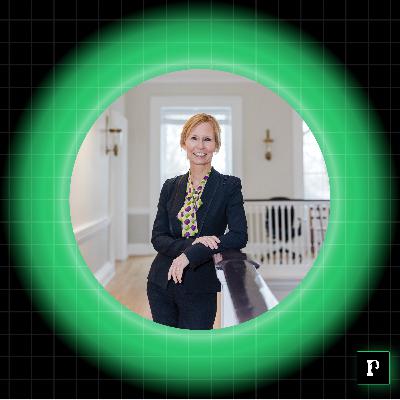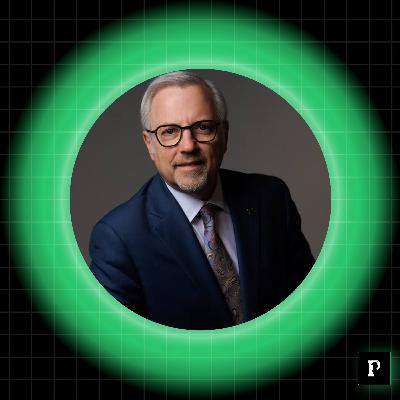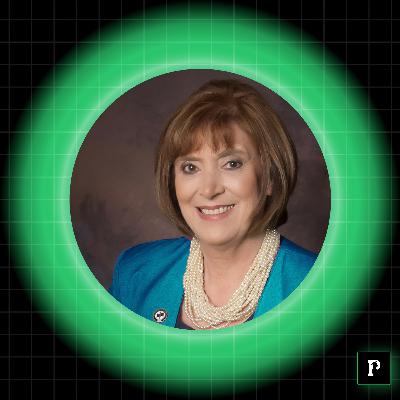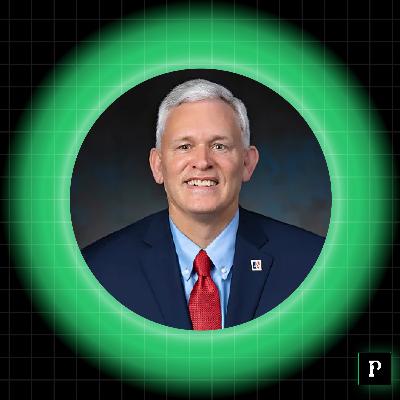Discover The Plexuss Presidential Podcast
The Plexuss Presidential Podcast

The Plexuss Presidential Podcast
Author: PLEXUSS
Subscribed: 1Played: 7Subscribe
Share
© 957620
Description
Welcome to the Plexuss Presidential Podcast, where we sit down with forward-thinking leaders in higher education to explore the ideas shaping today—and the innovations driving tomorrow.
Season 3 dives deep into the intersection of AI, education, and the future of the workforce, featuring bold conversations with presidents and changemakers across the country.
Season 3 dives deep into the intersection of AI, education, and the future of the workforce, featuring bold conversations with presidents and changemakers across the country.
224 Episodes
Reverse
Dr. JP Novin welcomes Dr. Catherine Wehlburg, President of Athens State University, to discuss the university’s focus on upper-division courses and transfer students, emphasizing accessible education for adult learners and career-connected programs. Dr. Wehlburg shares her background in higher education administration and explains how Athens State integrates AI literacy into its curriculum to prepare students for workforce changes and promote lifelong learning through a “50-year curriculum.” Together, Dr. JP Novin and Dr. Wehlburg highlight the university’s AI initiatives, including a new certificate program and specialized courses, and discuss how Athens State continuously updates its academic offerings through industry partnerships and advisory boards to stay aligned with evolving workforce needs and regulations.
Dr. JP Novin welcomes Nuno Fernandes, President of American Public University System, to the Higher Education Leader Podcast to discuss the impact of AI on education and the workforce. Nuno Fernandes explains how APUS prepares students for AI integration through its “APUS Signature Skills” initiative and by promoting transparent AI use in the classroom. The conversation also explores AI’s role in university operations, including a 24/7 mental health app and automated transfer credit evaluations, emphasizing that AI should enhance quality and reduce costs in education.
Dr. JP Novin welcomes Dr. Stephen Spinelli, President of Babson College, to discuss Babson’s entrepreneurial focus and the integration of AI into its educational model. Dr. Spinelli highlights Babson’s unique experiential learning approach, where students start businesses in their first week and are prepared for continuous learning through customized career roadmaps. He emphasizes how AI enhances efficiency and scalability in ventures. The conversation also explores the impact of AI on various professions, the need for higher education to evolve into a “cradle-to-grave” partnership for lifelong learning, and the importance of K–12 education in fostering critical thinking.
JP Novin welcomes Dr. Fernando Delgado, President of Lehman College, who highlights the college's mission to promote social mobility in the Bronx as a Hispanic Serving and Minority Serving Institution. President Delgado discusses the challenges of the "digital divide" in the Bronx, which impede AI integration, and emphasizes the need for students to master AI tools for future workforces while navigating risks and compliance. He outlines Lehman College's AI initiatives, focusing on professional development for faculty and staff, and stresses the importance of interdisciplinary approaches and "soft skills" from the humanities and social sciences for future academic programs.
Dr. JP Novin welcomes Dr. Brian Bruess, President of the College of Saint Benedict and Saint John’s University, to the Plexuss Higher Education Leadership Podcast. Dr. Bruess shares how he is leading two long-standing partner institutions through bold transformation under a strong integration model. The discussion covers unifying governance and operations, restructuring around student learning, and launching a shared strategic plan. Dr. Bruess also reflects on the importance of adaptability, experiential learning, and sustainability as higher education embraces AI and prepares students for the future workforce.
Dr. JP Novin welcomes Jeremy Singer, President of the College Board, to Episode 29 of Season 3 of the Plexuss Presidential Podcast. They discuss the College Board's 125-year evolution and how it leverages technology to improve student outcomes. Jeremy highlights AI’s growing impact on education and the workforce, noting an “authenticity crisis” in assessments due to AI and grade inflation, which led to the creation of Bluebook for standardized exams. The conversation also explores test-optional versus test-blind policies, the need to upskill the workforce for an AI-driven world, and the value of higher education, with Jeremy emphasizing the importance of colleges rethinking their cost structures.
Dr. JP Novin welcomes Dr. Ali Houshmand, President of Rowan University, to discuss how entrepreneurial leadership can redefine higher education. Under Dr. Houshmand’s direction, Rowan has doubled its enrollment and become one of the fastest-growing public research universities in the country—now home to three medical schools.Dr. Houshmand shares how his background in engineering and his commitment to access, affordability, and innovation shape Rowan’s approach to serving students and driving economic growth. The conversation explores how universities can embrace entrepreneurial thinking to build sustainable futures for both their students and communities.
Dr. JP Novin welcomes President Bryon Grigsby, who discusses Moravian University's rich history, its commitment to access and inclusion, and how it prepares students for careers in health sciences, computer science, and business. President Grigsby highlights AI’s transformative impact on the workforce, emphasizing the need for colleges to equip all students with AI skills and integrate them across the curriculum as a critical transferable skill. Their conversation explores professions most at risk due to AI, the potential renaissance of the humanities through digital applications, and the evolving nature of learning artifacts—all centered on human empathy and the importance of transferable skills in a rapidly changing job market.
Dr. JP Novin introduces Dr. Roger J. Best, the 16th president of the University of Central Missouri (UCM). Dr. Best provides an overview of UCM's growth and diverse programs, emphasizing its role in serving first-generation college students. The discussion focuses on AI's dramatic impact on the workforce, distinguishing between job displacement and augmentation. Dr. Best highlights UCM's proactive approach to integrating AI into strategic planning and curriculum development to prepare students for an uncertain future. They also address challenges in workforce upskilling, the evolving value of college education, the future of legal professions, and difficulties in AI regulation, while anticipating shifts in degree granting and the overall student experience.
Dr. JP Novin and Dr. Colleen Perry Keith discuss Goldey-Beacom College's adaptation to workforce needs, emphasizing the integration of AI into the curriculum and the development of workforce training certificates, particularly at the graduate level. Dr. Keith highlights the college's focus on listening to students, graduates, and employers to offer relevant programs, addressing the impact of AI on various industries, and exploring AI for admissions and recruitment. They also examine Delaware's workforce challenges, the future of degree programs, and the college's evolution toward a corporate-training-oriented institution.
Dr. JP Novin welcomes Dr. Wesley Fugate to the Higher Education Leader Podcast, where Dr. Fugate shares his untraditional path to becoming president of Wilson College and discusses the college's significant growth and transformation, including its transition to co-education and surpassing pre-pandemic enrollment numbers. He emphasizes AI's impact on the future workforce, urging students to use it responsibly and highlighting how AI frees up time for essential "human touches" in both healthcare and higher education. Dr. Fugate also stresses the importance of a liberal arts education in developing critical thinking and adaptability. Key discussion points include equipping students with foundational technology skills, upskilling the workforce for AI literacy, and strengthening “power skills” such as resiliency and communication in an AI-driven world.
JP Novin welcomes David A. Armstrong, President of St. Thomas University, to discuss the university's remarkable turnaround since 2018, including tripling enrollment, quadrupling on-campus housing, and strengthening its financial position. President Armstrong highlights St. Thomas University's focus on experiential learning and “robot-proofing” students through technological, data, and human literacy. He outlines extensive AI initiatives such as an AI Ethics Task Force and the use of “Tony,” the AI agent for admissions, while emphasizing the continued importance of human skills like critical thinking, communication, and manual trades amidst rapid AI advancement and potential workforce disruption. President Armstrong envisions St. Thomas University growing physically and becoming a leader in the ethical use of AI, preparing students as global citizens through real-world experiences.
JP Novin opens the podcast by introducing Lisa Vollendorf, President of Empire State University, who discusses the university's mission as the innovation arm of the SUNY system, its significant growth, and its role in providing online education. Lisa Vollendorf emphasizes Empire State University's proactive approach to AI readiness, including integrating AI literacy into the curriculum and developing stackable credentials to address the evolving workforce and the digital divide. She also highlights the university's commitment to supporting diverse student populations through flexible online formats, reducing barriers to education, and fostering K–12 collaborations to promote early access to higher learning and AI literacy.
Dr. JP Novin introduces Dr. Rachelle Keck, President of Grand View University, to discuss AI's impact on higher education and the future workforce, highlighting Dr. Keck's journey from attorney to university president. Dr. Keck details Grand View University's historical adaptation and current efforts to integrate AI across all disciplines, fostering curiosity and collaborative intelligence. Key discussion points include AI's transformative role in various industries, the importance of customized education, ethical considerations, and the resurgence of liberal arts in preparing students for an evolving job market.
Dr. JP Novin speaks with Dr. Amy Bragg Carey, the 14th president of Friends University, about the university’s growth and engagement with AI education. Dr. Carey highlights Friends University’s increasing enrollment and efforts to partner with local businesses, noting that AI is rapidly changing many fields and requires equipping students with an understanding of AI tools. They also discuss the ongoing challenges of integrating AI into the curriculum, addressing ethical and security concerns, and preparing for AI’s impact on various industries and the broader workforce.
JP Novin speaks with Nora Demleitner, who served as President of St. John’s College, about the logical progression from a liberal arts education to law, emphasizing the importance of foundational knowledge and critical analysis. Demleitner is writing a book on criminal justice and AI ethics, raising concerns about AI’s impact on entry-level jobs and highlighting the need for higher education to adapt by focusing on foundational knowledge and lifelong learning. She also shares strategies for AI preparedness at St. John’s, explores legal barriers and uses of AI in the legal field, and reflects on the challenges facing liberal arts institutions.
Dr. JP Novin speaks with Dr. James Lentini, President of Molloy University, about leadership in education, AI, and the future workforce. Dr. Lentini highlights Molloy’s history, current enrollment growth, and the university’s proactive integration of AI into both administrative and academic functions, including new certificates and courses. Together, Dr. Lentini and Dr. Novin emphasize the importance of ethically controlled AI use across disciplines and industries, and the need for education to prepare students for an AI-driven future while maintaining the crucial human element.
JP Novin and José Marie Griffiths discuss the profound impact of AI on the future workforce, highlighting Dakota State University's comprehensive approach to AI education, including new degrees and the integration of computing across all disciplines.José Marie Griffiths emphasizes preparing students for evolving job roles, addressing ethical considerations, and promoting AI literacy across the population, while also noting challenges in AI regulation and the rapid pace of technological change compared to policy development.
JP Novin introduced Dr. Irma Becerra, President of Marymount University, who shared her extensive background in AI research and discussed how AI is transforming the workforce and education, including Marymount University's new AI degree and minor programs. Dr. Irma Becerra explained the university's "Momentum" strategic plan, which fosters interdisciplinary collaboration and prepares students for AI's impact across all industries. Jp Novin and Dr. Irma Becerra discussed the societal implications of AI, including job recalibration and the potential for an "intelligence divide," emphasizing the critical role of higher education in preparing individuals for future economic mobility and addressing regulatory challenges.
Dr. JP Novin welcomes Jonathan Alger to discuss American University's AI initiatives, including their Applied Artificial Intelligence program, academic AI curriculum, and leadership in ethical AI. Jonathan Alger explains that AI is rapidly transforming the job landscape, requiring universities to prepare students for multiple future careers by emphasizing lifelong learning skills such as intellectual curiosity, creativity, and ethical reasoning. He notes that American University is actively adapting its curriculum to meet the demands of AI's evolution by developing nimble, flexible programs and launching an "AI for Educators" module designed for K–12 teachers. Throughout the conversation, Alger emphasizes the ongoing importance of human judgment and ethical considerations to ensure AI contributes to societal stability rather than undermining democracy.


